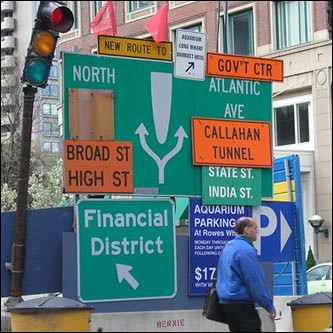Last week I posed the question--what do readers want from an author website? Thanks so much to those of you who chimed in! :)
So after reading your responses, I decided to update an older post I did on Fiction Groupie on this topic and add in the new information.
Photo by NNECAPA Photo Library (cc)
13 Steps to Creating an Author Website Readers Will Love
1. Make sure a drunk monkey could navigate it.
Please, please, please make it easy for me to find whatever I'm looking for. I don't want to have to dig. I will move on.
2. Have a clean and quiet design.
Make the design eye-catching but clean. No black background with white text please (okay in the title just not in heavy text areas) because it's super hard on the eyes. And DO NOT HAVE MUSIC that auto-plays.
3. Make it easy to read about and buy your books.
I'm amazed at how many author websites bury the info about their books like they're some sort of prize at the bottom of the cereal box. I want to be able to see the following:
a) Available Now - The books you have out now with blurbs AND covers
b) Coming Soon - The books that are upcoming and their blurbs and covers once available
c) Buy buttons where I can choose which store I want to purchase from.
4. Label your series and provide an organized view of your backlist titles.
If you write series, LABEL them and put the books in order so that I know which comes first. It's sometimes hard to tell on bookstore sites what the order of a series is. Please help your readers with this. And even if you don't write series, have your backlist listed in date of publication order. If you have a lot of books, provide a printable/downloadable list.
5. A photo of you. Not your avatar or cat. You!
Get over your I-hate-all-pictures-of-myself thing. EVERYONE except maybe those kids on Jersey Shore hates pictures of themselves. It's normal. But I as a nosy reader want to put a face with the author name. And I don't care if you don't look like a supermodel. But believe me, if you have no pic, I will imagine you as a wart-covered troll. Just sayin' Also, a bio that rocks is a necessity. (Tips on that here.)
6. Provide links to all the ways I can stalk you.
Have links on your contact page with your twitter, facebook, goodreads, google +, email, etc. links. Recently, I've discovered a few authors have Tumblrs but I stumbled on that fact, it's not listed on their website. Don't make people track down their preferred way of connecting with you.
7. Don't have your blog be a replacement for your website.
This doesn't bother me personally, but readers mentioned it in the Dear Author post. Readers wanted a dedicated website, not just a blog to find information. Though I suspect if you use the pages feature in blogspot or wordpress where you have tabs, most readers would be okay with that. They just don't want to have to dig through blog posts to find information.
7. If you blog, don't phone it in.
If you hate blogging, we'll be able to tell. So if you are going to do it. Really do it. And for the love of all things good and holy, please attempt to make it interesting. And it's not about YOU, it's for the reader. I'm going to quote from a fabulous post over at Author Tech Tips: "Yes, yes, you’re a big famous author. But people still don’t care about you. They care about themselves. Think that is selfish? Take the plank out of your own eye before you can point the finger. If you offer something of value, your readers will want to come back. Photos of your kids will not bring them back."
If you hate blogging, just have a news page (see tip 10) or do a less time intensive blog like Tumblr and feed it into your website. (See: Blogging solution for those who a hate to blog.)
8. Be addictive.
Give your readers a reason to want to come back. Do you offer something they can only get on your site? Contests? Super secret snippets from your current project? Deleted scenes? Pictures of your characters? Playlists for your books? Think of takeaways that would excite a reader.
9. A website is not like a cactus--you can't water it every six months and assume it's going to thrive.
Going to an author site who has an update from months ago is like getting served stale chips at a Mexican restaurant. It makes your image feel stale. Like, wow, nothing exciting is happening with his books right now. Even if you don't blog, make sure that your release dates and such are up to date. Don't say coming soon and the book release date has already passed.
10. Be newsworthy
Have a News & Events page so that readers can quickly access what's going on (and not have to sift through blog posts). Are you going to speaking somewhere or did you win an award? Did you just find out you're going to be able to write a book about so and so character? Put that in your news section. It's a good addition or even alternative to having an active blog. Just make sure you keep it fresh.
11. Pimp Out Others
On Author Tech Tips, they quoted a survey that said a third of readers like to see what books your recommend when they visit your website. I think one way to do it is having other authors stop by your blog and do interviews and contests. You can also put a Goodreads widget somewhere on your site (like mine over there on the right) that shows what you're reading right now. That's a form of recommendation.
12. Be likable
Please do not use your site for rants or whining. It should be a positive, happy place for people to be--even if you write about serial killers. You want people to leave your site thinking that they could enjoy being friends with you.
13. Interact with your readers
Everyone is pressed for time and if you're Ms. Super Duper Hugely Famous author maybe you have an excuse, but try to respond to your readers. If they send you an email, try to respond. If they leave a comment on your blog, comment back. (I've not been perfect on this, but I'm working on it.) Show readers that you do appreciate them and are listening.
Alright, so those are my tips. What are some of the things that you like to see on an author website? What are some author sites you visit regularly--why? What did I forget on this list?




